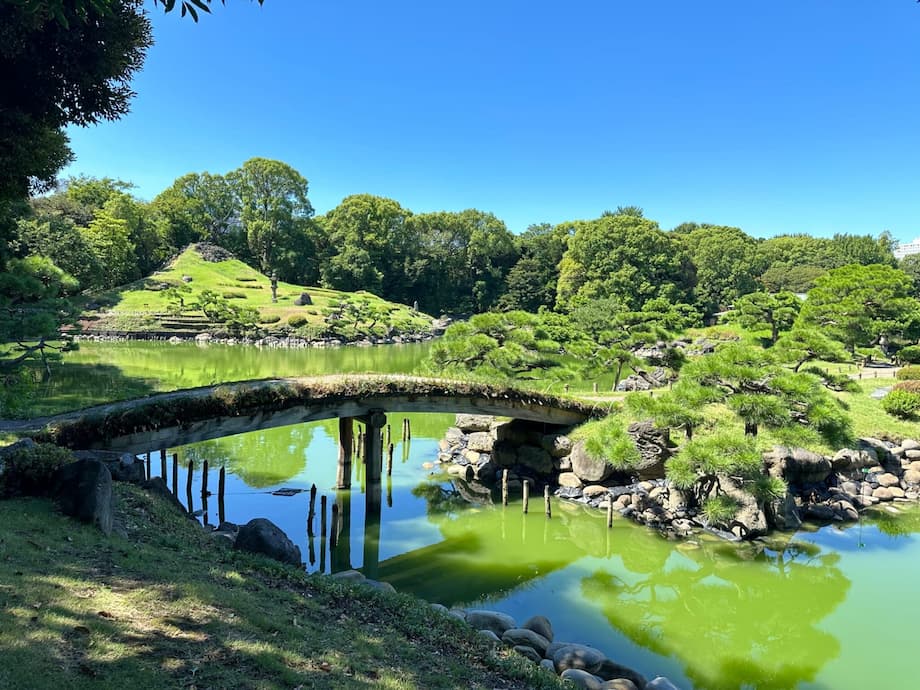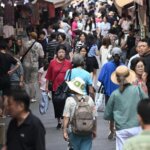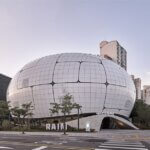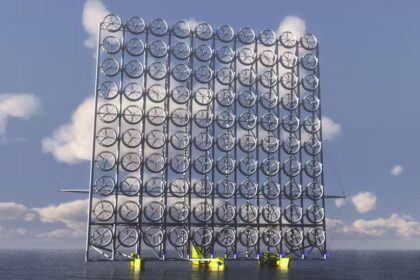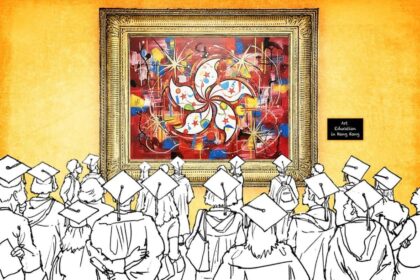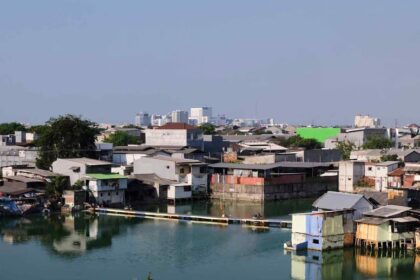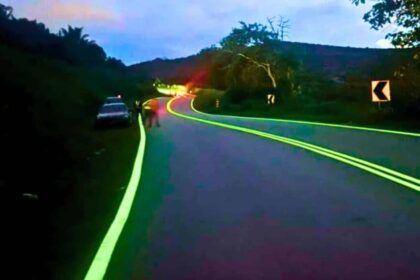Discovering Kiyosumi-Shirakawa: Tokyo’s Tranquil Cultural Gem
In a city famed for its neon-lit bustle and relentless pace, Kiyosumi-Shirakawa stands out as a serene enclave where art, coffee, and riverside calm converge. Nestled in eastern Tokyo’s Koto ward, this neighborhood has transformed from a quiet district of warehouses and canals into one of the capital’s most vibrant cultural pockets. Here, converted factories house cutting-edge galleries, independent cafes, and design-driven shops, all set against the backdrop of wide waterways and historic architecture. For those seeking a slower, more contemplative Tokyo experience, Kiyosumi-Shirakawa offers the perfect day out.
- Discovering Kiyosumi-Shirakawa: Tokyo’s Tranquil Cultural Gem
- How Coffee Culture Redefined the Neighborhood
- Strolling Through History: Gardens, Museums, and Edo-Era Echoes
- Lunch and Local Flavors: Where Creativity Meets Comfort
- Afternoon Art: Galleries, Museums, and Creative Spaces
- Shopping and Local Markets: Handmade, Vintage, and Unique Finds
- Active Exploration: Riverside Walks and Cycling Adventures
- Evening Calm: Bars, Izakaya, and Riverside Reflections
- Why Kiyosumi-Shirakawa Captivates Locals and Visitors Alike
- In Summary
How Coffee Culture Redefined the Neighborhood
Kiyosumi-Shirakawa’s reputation as Tokyo’s “Coffee Town” is well-earned. The area became ground zero for the city’s third-wave coffee movement when California’s Blue Bottle Coffee opened its first Tokyo branch here in 2015. Housed in a refurbished warehouse, Blue Bottle’s minimalist design and meticulous brewing set the tone for the neighborhood’s artisanal coffee scene. The arrival of Blue Bottle sparked a wave of independent roasters and cafes, each bringing their own flavor and philosophy to the area.
Just a short stroll away, Arise Coffee Roasters offers a more intimate experience. The tiny shop is known for its hand-poured single-origin coffees and the owner’s friendly banter with regulars. For those seeking a blend of community and caffeine, Allpress Espresso Tokyo Roastery & Cafe—a New Zealand import—transformed another warehouse into a light-filled space famous for its smooth flat whites and laid-back vibe. Other notable stops include Iki Espresso with its in-house bakery and New Zealand-style pies, and Koffee Mameya Kakeru, which turns coffee into an omakase-style tasting experience, complete with baristas in lab coats and a menu that reads like a degustation for coffee aficionados.
For the adventurous, Rikashitsu Distillery offers coffee brewed through scientific glassware, blending the worlds of chemistry and caffeine. Meanwhile, Cream of the Crop and Sunday Zoo add to the area’s diverse coffee landscape, ensuring that every palate finds its perfect cup.
Strolling Through History: Gardens, Museums, and Edo-Era Echoes
After a morning spent savoring coffee, visitors can step into the tranquility of Kiyosumi Gardens (Kiyosumi Teien). Once the private retreat of feudal lords and later developed by Mitsubishi founder Iwasaki Yataro, this traditional strolling garden is a masterpiece of landscape design. Its central pond, dotted with stepping stones, turtles, and koi, invites meditative walks beneath meticulously pruned pines. Unlike the crowded parks of Ueno or Shinjuku, Kiyosumi Gardens remains a peaceful oasis, perfect for quiet reflection or a leisurely picnic.
History buffs will find much to explore at the Fukagawa Edo Museum, a short walk from Kiyosumi-Shirakawa Station. This immersive museum recreates an Edo-period neighborhood in full scale, complete with traditional houses, shops, and a fire tower. Visitors can wander through authentic streets, learn about construction techniques, and experience the seasonal rhythms of old Tokyo. Volunteer guides, often fluent in English, add depth to the experience with stories and insights into daily life during the Edo era.
The area’s connection to Japanese literary history is also significant. The Basho Inari Shrine and nearby Basho Museum commemorate the legendary haiku poet Matsuo Basho, who began his epic journey through northern Japan from this very neighborhood. The museum’s peaceful garden and exhibits offer a quiet space for contemplation and a deeper understanding of Basho’s enduring influence.
Lunch and Local Flavors: Where Creativity Meets Comfort
Kiyosumi-Shirakawa’s culinary scene mirrors its creative spirit. Fukadaso Cafe, set in a renovated 1960s apartment building, serves light meals and homemade sweets in a space brimming with vintage charm. The cafe’s signature puddings are a local favorite, and the relaxed atmosphere encourages diners to linger over lunch or dessert. For a taste of tradition, Owariya offers classic soba noodles in a pared-down setting, inviting guests to slow down and savor each bite.
Bakeries such as Bakery Cattlea—the birthplace of Japanese curry bread (karepan)—tempt visitors with the aroma of fresh sourdough and pastries. For those seeking something unique, Artichoke Chocolate crafts handmade chocolates using globally sourced cacao, while Teapond specializes in high-grade teas from around the world, served in a European-style setting.
Afternoon Art: Galleries, Museums, and Creative Spaces
The afternoon in Kiyosumi-Shirakawa is best spent exploring its thriving art scene. The Museum of Contemporary Art Tokyo (MOT) is the neighborhood’s crown jewel, boasting one of Japan’s largest collections of post-1945 art. Its airy galleries host rotating exhibitions that span Japanese modernism, global installations, and works by icons like Andy Warhol, Roy Lichtenstein, and Yoko Ono. The museum also features an extensive art library, a stylish shop, and a cafe for post-exhibit reflection.
Beyond MOT, the neighborhood is dotted with smaller, often hidden galleries. Ondo Gallery, Hagiwara Projects, Ando Gallery, and Mujin-to Production are just a few of the spaces tucked into repurposed warehouses or behind unassuming facades. These galleries showcase both Japanese and international artists, offering visitors the thrill of discovering emerging talent and experimental works. The sense of community is palpable—flyers and postcards at cafes and galleries keep locals and visitors informed about current shows and events.
Public art installations, including those at Kiyosumi-Shirakawa Station, add to the creative atmosphere, making even a simple walk through the neighborhood an artistic experience.
Shopping and Local Markets: Handmade, Vintage, and Unique Finds
Kiyosumi-Shirakawa’s creative energy extends to its shopping scene. Kurashigoto-ichi, a handmade market curated by Gallery Onoda, brings together over 30 local artists offering one-of-a-kind earrings, art, fashion accessories, and homeware. The market also features artisanal Japanese snacks and beverages from local coffee and tea roasters, making it a must-visit for those seeking unique souvenirs or gifts.
Shops like Babaghuri blend Japanese and ethnic influences in clothing and interiors, while Edomiyageya Takahashi offers nostalgic snacks and toys. Gift_lab Garage Lounge and Exhibit is a renovated 1930s garage turned cafe, gallery, and bookshop, perfect for browsing eclectic accessories and interior goods. For traditional attire with a twist, Tamakiya Gofuku Kimono Shop features both classic and innovative kimono, including denim versions and even pet-sized outfits.
Active Exploration: Riverside Walks and Cycling Adventures
One of Kiyosumi-Shirakawa’s greatest pleasures is simply wandering its quiet, flat streets or following the tree-lined paths along the riverside. The calm waters, simple bridges, and gentle pace offer a different side of Tokyo—one that feels unhurried and deeply local. Joggers, cyclists, and families share the paths, especially as the sun sets and the city’s lights begin to shimmer on the water.
Cycling is particularly popular, with rental bikes available from Alohaloco near the Sumida River. The area’s flat terrain and sparse traffic make it ideal for exploring on two wheels, whether you’re heading to a hidden gallery, a riverside park, or simply enjoying the fresh air. For those seeking a longer ride, Tokyo’s extensive cycling routes—such as the Sumida River path—offer scenic views of landmarks like Tokyo Skytree and easy access to other neighborhoods.
Evening Calm: Bars, Izakaya, and Riverside Reflections
As evening approaches, Kiyosumi-Shirakawa’s riverside paths become even more enchanting. The gentle glow of streetlights, the sound of water, and the relaxed pace create the perfect setting to unwind after a day of exploration. For those not ready to head home, the neighborhood offers a selection of cozy bars and izakaya. Fukagawa Brewery is a standout, serving craft beer in a welcoming atmosphere that encourages lingering conversations and new friendships. Other local spots offer sake, small plates, and the chance to experience Tokyo’s famed hospitality in a more intimate setting.
Why Kiyosumi-Shirakawa Captivates Locals and Visitors Alike
Kiyosumi-Shirakawa’s appeal lies in its unique blend of old and new, tradition and innovation. The neighborhood’s roots as a merchant and artisan district during the Edo period are still visible in its architecture and community spirit. At the same time, its embrace of contemporary art, design, and coffee culture has attracted a new generation of creatives and entrepreneurs.
Unlike Tokyo’s more touristy districts, Kiyosumi-Shirakawa offers a sense of discovery and authenticity. Whether you’re sipping a hand-poured coffee in a converted warehouse, wandering through a centuries-old garden, or stumbling upon a hidden gallery, the neighborhood invites you to slow down and savor each moment. It’s a place where the city’s relentless energy gives way to quiet inspiration—a perfect day in Tokyo, reimagined.
In Summary
- Kiyosumi-Shirakawa is a tranquil neighborhood in eastern Tokyo known for its vibrant coffee culture, art scene, and riverside calm.
- The area’s transformation began with the arrival of Blue Bottle Coffee, sparking a wave of independent cafes and roasteries.
- Key attractions include Kiyosumi Gardens, the Museum of Contemporary Art Tokyo, and the immersive Fukagawa Edo Museum.
- Lunch options range from vintage-inspired cafes to traditional soba shops and innovative bakeries.
- The neighborhood is dotted with galleries, handmade markets, and unique shops offering art, fashion, and homeware.
- Riverside paths and flat streets make Kiyosumi-Shirakawa ideal for walking and cycling.
- Evenings can be spent at cozy bars and izakaya, enjoying craft beer and local hospitality.
- Kiyosumi-Shirakawa offers a slower, more authentic Tokyo experience, blending history, creativity, and community.


